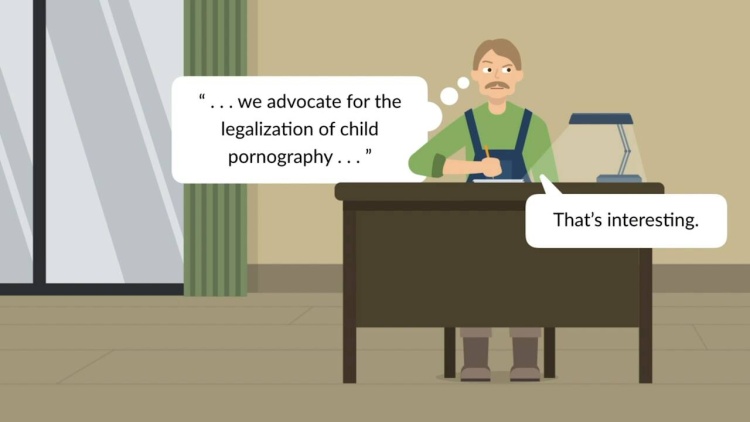Jacobson v. United States
United States Supreme Court
503 U.S. 540, 112 S. Ct. 1535, 118 L. Ed. 2d 174 (1992)
- Written by Sarah Venti, JD
Facts
Jacobson (defendant) ordered some reading material from an adult bookstore. He later testified that he was surprised to find that some of the photographs were of young boys. Three months later, Congress passed a new anti-child-pornography law that made it illegal for child pornography to be sent through the mail. Over the next two and a half years, two government agencies investigated Jacobson’s willingness to break the new law. In an effort to determine whether he would order pornographic images of children through the mail, the postal inspector fabricated four organizations and sent Jacobson materials from these organizations. The various materials presented the respective organization as an advocate of child pornography. Materials consisted of questionnaires, asking Jacobson what sort of pornography he enjoyed, as well as pamphlets and information criticizing the government for censorship and infringing on individual rights. Jacobson joined these organizations and filled out their questionnaires. The Customs Service, under the guise of yet another fake organization, sent Jacobson a brochure advertising photos of boys having sex. Jacobson placed an order that was never filled. Finally, Jacobson placed an order with one of the Postal Service’s fake organizations. He ordered a pornographic magazine showing boys having sex. Jacobson was arrested when the magazine was delivered. After his arrest, the only evidence the police found that indicated that Jacobson was interested in child pornography consisted of the letters and brochures sent to him by the government. The judge instructed the jury on Jacobson’s entrapment defense. Jacobson was convicted.
Rule of Law
Issue
Holding and Reasoning (White, J.)
Dissent (O’Connor, J.)
What to do next…
Here's why 905,000 law students have relied on our case briefs:
- Written by law professors and practitioners, not other law students. 47,100 briefs, keyed to 995 casebooks. Top-notch customer support.
- The right amount of information, includes the facts, issues, rule of law, holding and reasoning, and any concurrences and dissents.
- Access in your classes, works on your mobile and tablet. Massive library of related video lessons and high quality multiple-choice questions.
- Easy to use, uniform format for every case brief. Written in plain English, not in legalese. Our briefs summarize and simplify; they don’t just repeat the court’s language.





